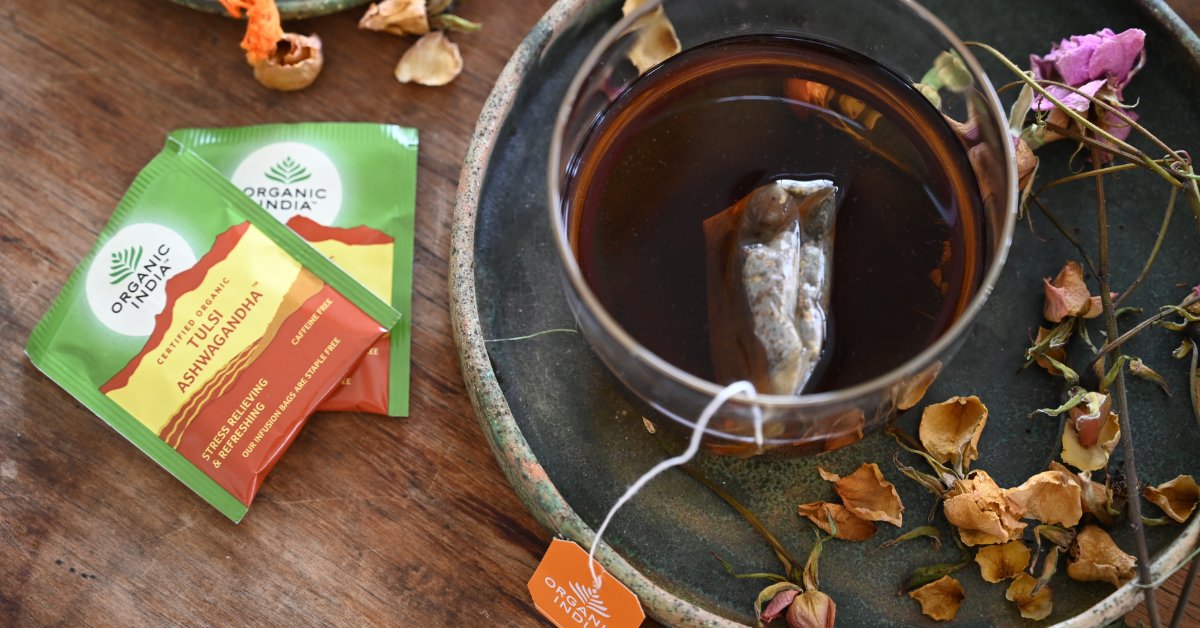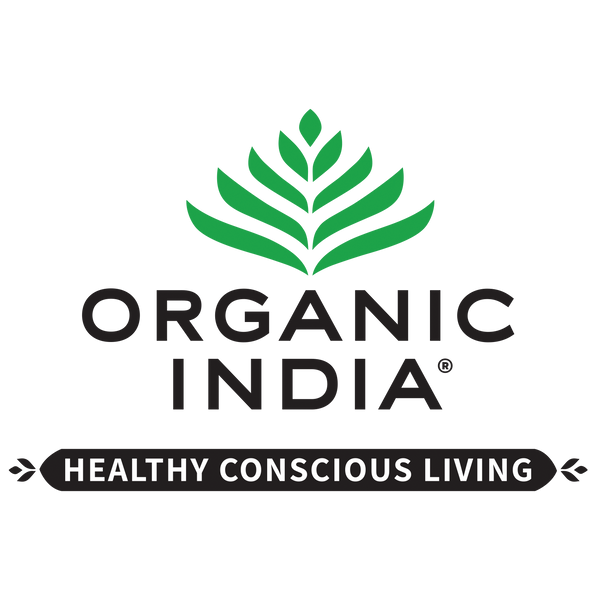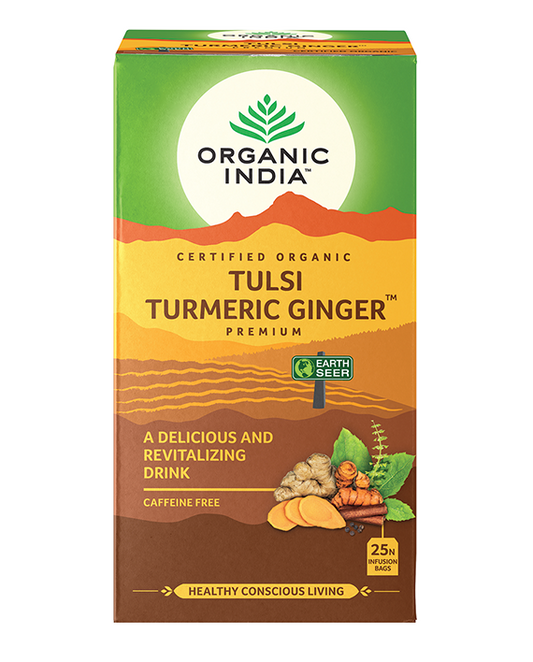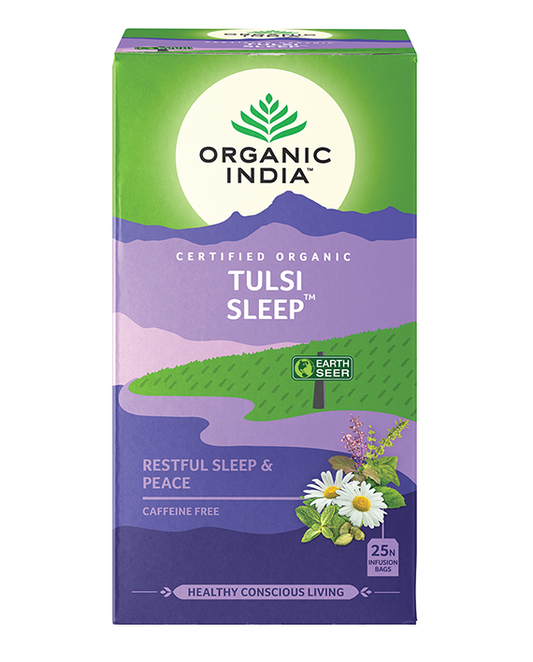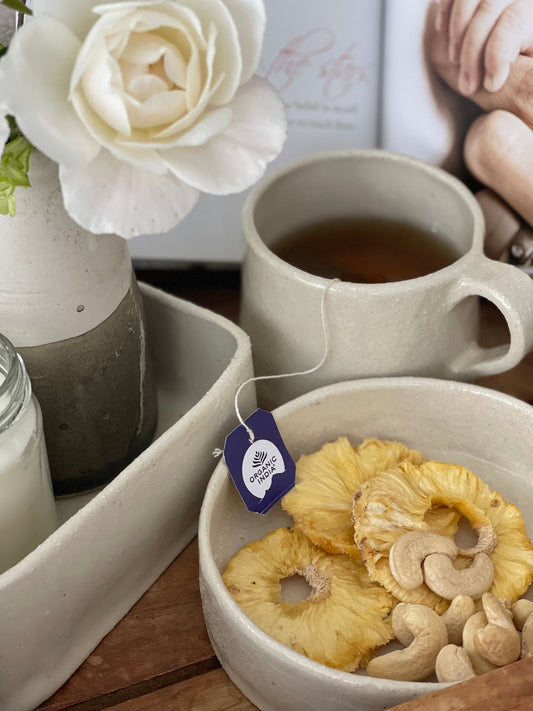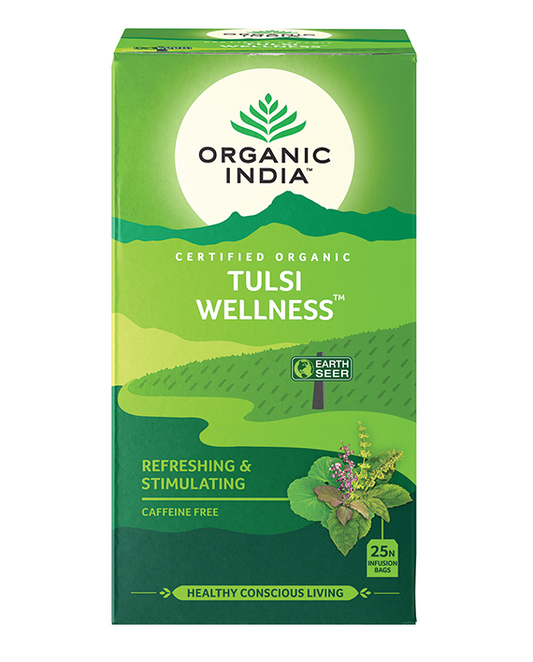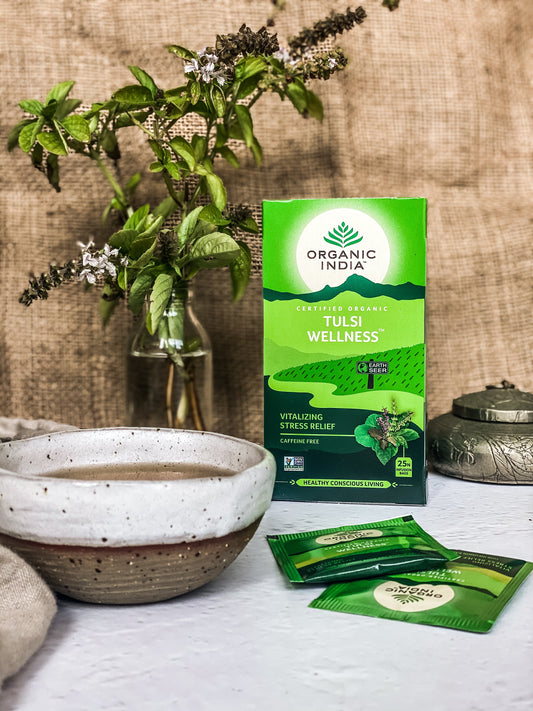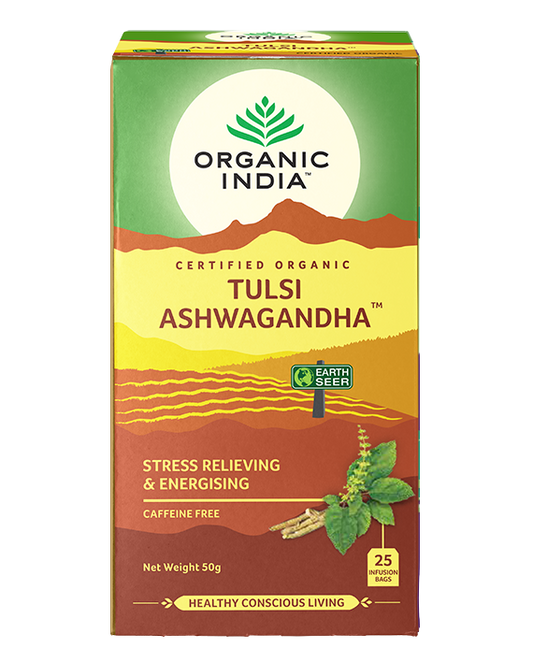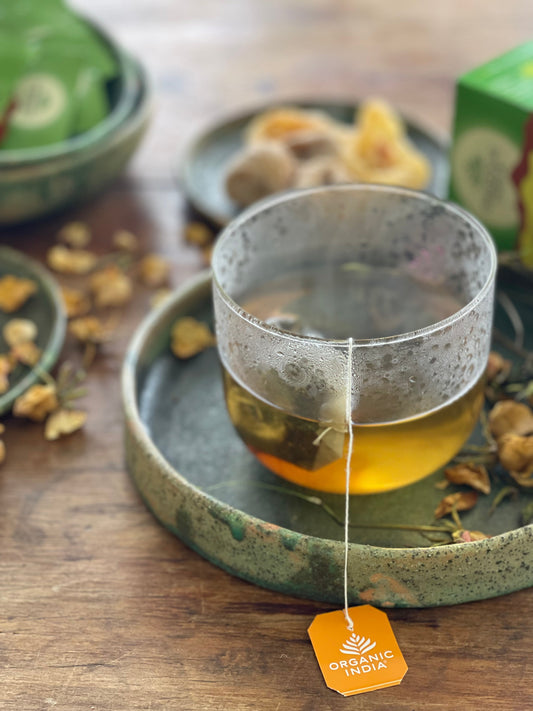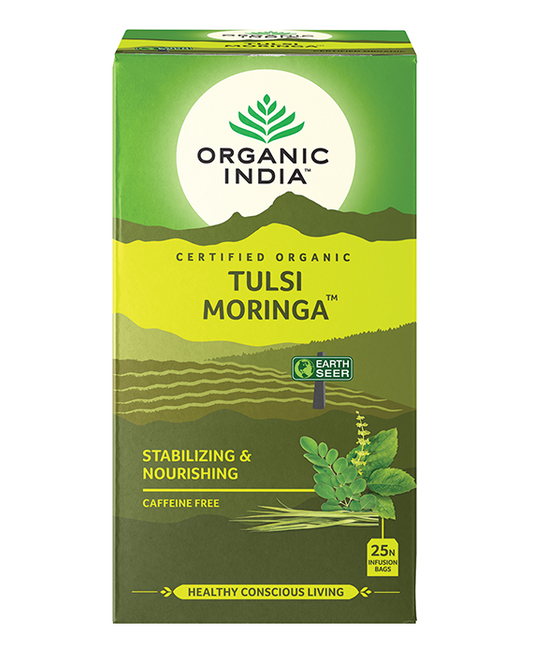ORGANIC INDIA’s Lucknow factory is now certified as the first LEED Platinum facility in India. This is an important accomplishment on many levels. Because ORGANIC INDIA’s mission is to be a vehicle of consciousness in the global market by offering wellness solutions in service to a community dedicated to healthy, conscious living — the LEEDs Platinum certification stands as evidence of its commitment to the welfare of its community, the environment, employees and farmer partners.
A New Standard of Excellence and Commitment
LEED is the acronym for “Leadership in Energy and Environmental Design,” and according to the U.S. Green Building Council (USGBC), the designation represents a worldwide green-building certification program that promotes a multiplicity of higher standards. All buildings affect human health and the environment — whether it be factories, office buildings, homes, warehouses, or hospitals.
The LEED Platinum Designation
Companies that pursue LEED certification must earn points within several categories: Location and Transportation, Sustainable Sites, Water Efficiency, Energy and Atmosphere, Materials and Resources, Indoor Environmental Quality, and Innovation. Based on points achieved, one of four LEED rating levels apply for certification. In ascending order, these levels are: Certified, Silver, Gold, and Platinum.
A Value-Based Supply Chain
ORGANIC INDIA’s farmers and wildcrafters are educated in organic, biodynamic and regenerative agricultural practices. The net result is that farming families achieve sustainable incomes, while at the same time improving and preserving their own health and natural environment.
Built for Human and Environmental Health
The U.S. Green Building Council (USGBC) explains, “Green buildings promote resilience-enhancing designs, technologies, materials, and methods. To support these efforts, green buildings promote the use of durable materials, thoughtful site selection, energy efficiency, onsite renewable generation and more.”
Boston University’s Sustainability Program says that LEED third-party verification demonstrates that a building is designed and constructed “Using strategies aimed at improving performance across all the metrics that matter most: energy savings, water efficiency, CO2 emissions reduction, improved indoor environmental quality, and stewardship of resources and sensitivity to their impacts.”
Waste Management
Experts from the USGBC report that as a developing nation, India faces tremendous waste-management concerns, the byproduct of economic development. The report states that, “It is crucial to address the core of the issue — reducing waste generation. As India is still developing policies and regulations, it is necessary to leapfrog the conventional methods of waste management and work towards ‘Zero Waste’ concept to achieve sustainable development.”
ORGANIC INDIA founder Bharat Mitra said, “This new factory is a beautiful embodiment of the essence of ORGANIC INDIA. On one hand, it has the latest technology and at the same time, it was built with awareness and consciousness to the environment. It’s built in a way that not only we don’t take, but we give back to the environment.”
With a mission to be an innovative global leader in providing organic products and true wellness solutions in service to a community dedicated to healthy, conscious living, ORGANIC INDIA offers a full line of USDA Certified Organic, Non-GMO Project Verified, and certified Kosher and Halal teas, infusions and whole-herb supplements derived from the ancient Ayurvedic health system of India. ORGANIC INDIA goes above and beyond sustainable — regenerating environmental, community and business ecosystems. All ORGANIC INDIA products are ethically sourced and sustainably cultivated by 3,000 small family farm partners in India. For more information, please visit ORGANICINDIA.com.au or find us on Facebook @organicindiaaus.
